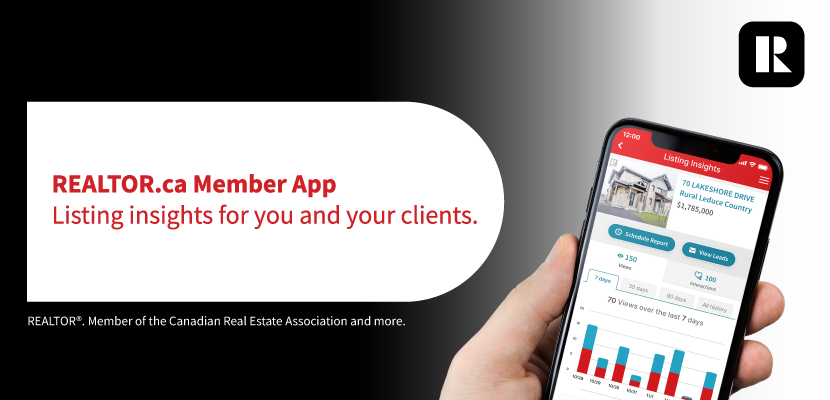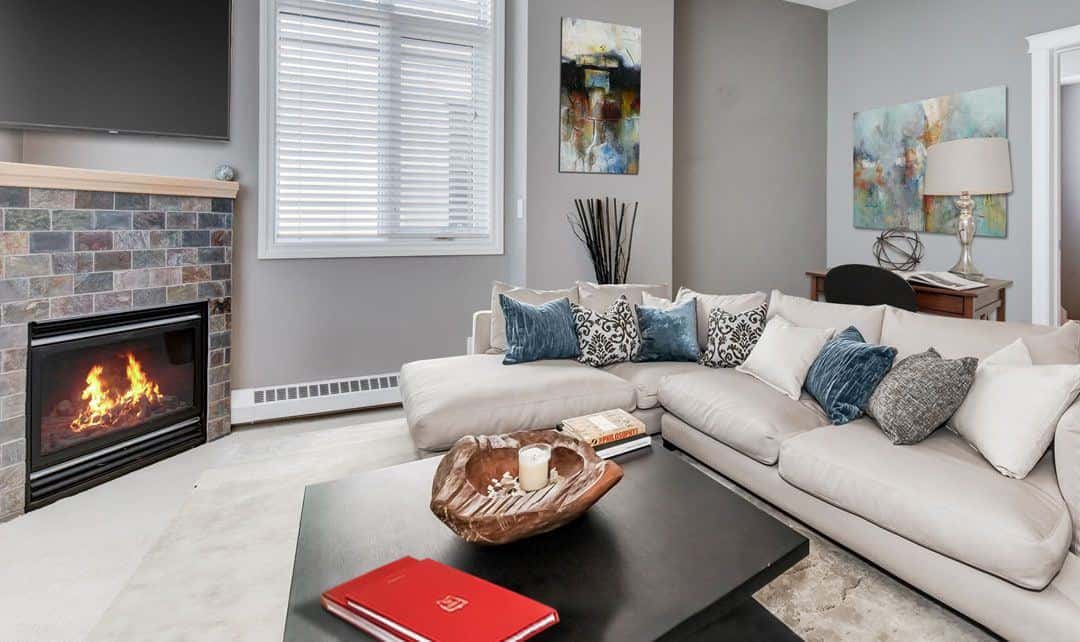Using 3D software used for websites, cinematic projects and games, real estate professionals can now show clients a property in its best light. Even if the home looks barren and is without furnishings, clients can view it staged. This creates a positive feeling about their prospective new home before they have even seen it.
Ajay Bhandari of Sona Visual real estate marketing in Calgary says, “Virtual staging is used sometimes in place of actually going and staging a home – especially when the people are still living in it. The benefit is that it reduces the cost and monthly rent of physical home staging items. Also, in places where a home is empty, it can discourage break-ins because someone may see the listing online and think that the house is lived in.”
Virtual staging and 3D photography have come a long way in a short time. In the 10 years that Bhandari has owned Sona Visual in Edmonton and Calgary, he says the past four years have been the greatest for technological advancement. Since the Matterport camera debuted, it is now possible to get a virtual showing of a house via a website. This is great for relocation clients and those short on time to imagine a home before making the trip to see it.
Think of virtual staging as the computer software version of placing items in a dollhouse. You may never have played with dolls, but the concept is likely familiar. The software provides options for you to add furnishings, wall colours and flooring. You can use photographs of your listing as the backdrop. After you give the software the measurements, it can create a 3D model of the house you are selling. The level of detail involved is up to the sales rep. You can use a company such as Sona Visual to arrange your 3D listing or do the work yourself by purchasing one of the many virtual staging software bundles available.
[twenty20 img1=”34581″ img2=”34580″ width=”100%” offset=”0.5″]
“Think of it as an added value to your existing services,” says Bhandari, “It has been my experience that once they have it done, Realtors love it.”
Sales rep Mike Atkinson of Forest Hill Real Estate in downtown Toronto says the new technology has led to greater sales success. It also provides a unique experience for his clients.
“I will use a combination such as an aerial drone coming into the neighbourhood from overhead. It shows the nearby streets, rooftops, specific outlines of the property and the outside of the house, all in a one-minute video. From there, I might add in HD quality photos of the interior of the home and a virtual reality walk-through tour.”
Atkinson uses technology that provides prospective clients with a continuous loop (no clicking to advance the page). He also works with professional photographers and contracts a company to refine the results into a cohesive listing page.
If you feel handy, there are plenty of online tutorials and articles to help. The National Association of Realtors site has a blog dedicated to home staging. Many of the tips transfer to the digital realm with ease.
When viewing your 3D listing online, clients should be aware that furnishings are computer added. Do not add an incredible outdoor scene to the windows unless one actually exists. Should your client become interested in the house, they will also see it in person without the added staging.
“It is about giving the client the most information possible,” says Atkinson, “They will notice things that are different or things which they were not expecting right away.”
Stay true to the home’s real colours and measurements. Indicate that it is a model and minor details such as furnishings or exact colours may vary.
When you are helping place clients’ furniture into an existing model, the same rules apply. Try to select furnishings that match the specifications you are given. For instance, if they want to see a king-sized bed in the master bedroom, your model bed must be king-sized. Go with the client’s preferences, because they are envisioning their next home.
Sometimes clients may want to view a 3D home with different appliances than are currently in place. They may want other colours and flooring. Indulge them so that they have all the information possible to make an informed decision. They may know, for instance, that the appliances are not stainless steel – but be planning a near-future purchase.
The most effective way to sell something is to make sure that it fills a need. 3D virtual staging can help them envision that in a potential house and feel at home before they open the front door.
Yvonne Dick is a contributing writer for REM with two decades of experience in journalism.


















